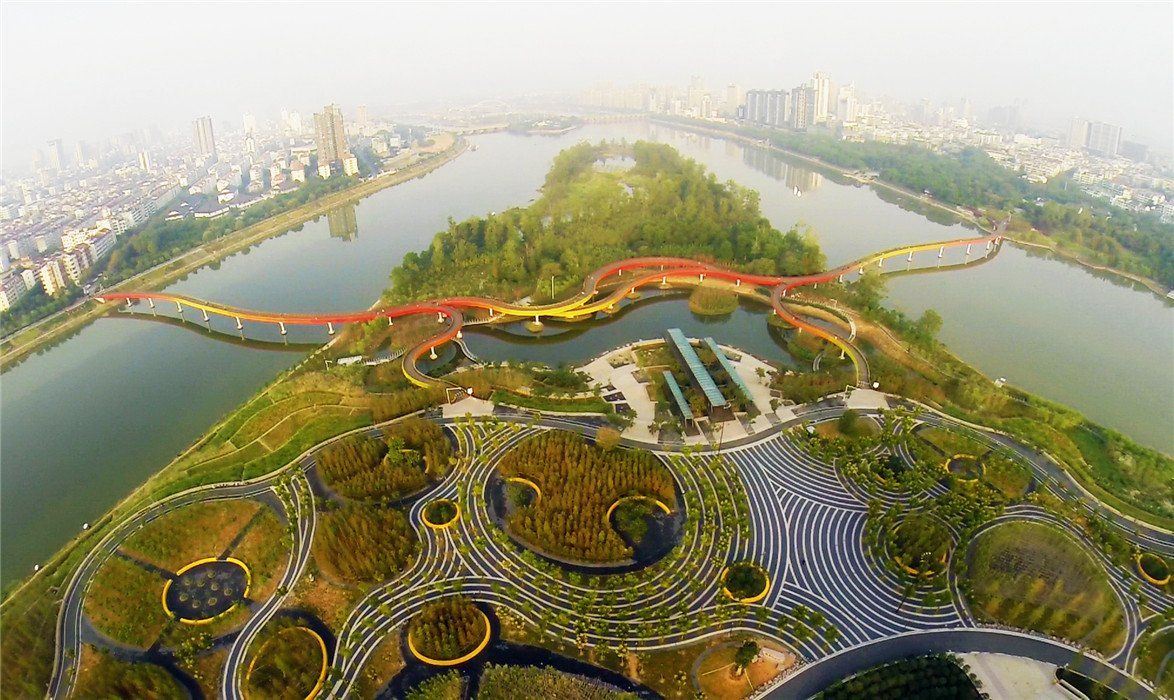Top 5 Green & Resilient City Initiatives
Since the advent of Smart Cities, we have witnessed different models and structures that have transformed the way we see and think about urban development. One major pillar in this new way of structuring is sustainability and its focus on making cities greener and more efficient both for citizens and the environment they live in. The other one is resilience, which looks at ways in which we rethink cities in order to withstand challenges such as extreme weather phenomena.
Today, we know there’s a wide array of options for transforming urban areas into sustainable and resilient communities. From optimising processes through innovation to reducing emissions and pollution, right through scanning for indicators that can help repurpose resources in more efficient ways. There are certainly more ways than one to ensure that citizens benefit from a sustainable and future-proof way of living.
It’s been estimated that by 2050, 70% of the world’s population will live in cities. And it’s encouraging to see a continued emergence of innovative projects that enhance city sustainability while helping fight climate change and the effects that come with it. With that in mind, at the top of the world’s green agenda lies the creation of resilient and sustainable communities for citizens, with rising urbanisation being both a challenge and an opportunity to get things right.
Looking at the UN’s Global Goals, which comprise 17 commitments to end extreme poverty, inequality, and climate change by 2030, we find one entirely dedicated to Sustainable Cities and Communities, which lists amongst its priorities the reduction of the adverse effects of natural disasters, as well as ensuring access to green spaces.
So, which initiatives around the world can we look towards for inspiration? Here are my top five.
1. Singapore’s Garden City
This is a great example of how the use of green infrastructure can help reduce and control urban floods. Also known as the “garden city”, Singapore uses its lush vegetation in a smart, strategic manner that tackles the risk of flooding, with spaces around the city acting as functional greenery towards a more sustainable and resilient community for its citizens.
2. Milan’s Vertical Forests
Milan’s vertical forests are a prime showcase of the vertical expansion of cities in a sustainable way. This unique project, which stands as a “Library of Trees” was designed as two residential tower blocks covered in 800 trees, 4,500 shrubs, and 15,000 plants. The vertical forest concept has already expanded to the Netherlands and a few locales around China.
3. China’s Sponge Cities
Another interesting initiative appearing over the last decade is the step up from green cities to “sponge cities”, which use the power of nature to mitigate the risks of extreme weather events, such as floods, through green spaces that can naturally detain and filter water. The strategy behind this type of urban project resides in the power of the landscape to retain or slow down water. The focus is to waterproof the paved floor so that it allows evaporation and gradual draining. It’s also a very efficient solution to recycle rainwater for later re-use.
4. Melbourne’s 20-minute neighbourhood
In Melbourne, the 20-minute neighbourhood provides citizens with all urban facilities within a 20-minutes trip, including miniature urban forests inspired by Japanese temples. The principle of a 20-minute neighbourhood relies on the ability of meeting most people’s daily needs within a single visit, while also optimising transport options.
5. Israel’s Smart Commuting
Israel has recently renewed its focus on smarter commuting, by allowing citizens to discover the most efficient journey through a dedicated algorithm. This system uses cutting-edge technology to combine pooled rides in private cars with on-demand transit services. It's a great way to make traffic more fluid and decongest polluted areas, so it’s a great example for other cities facing similar issues.
Do you know of any great initiatives that should be in this list? Or do you have questions on how your city or community can implement similar ideas? Feel free to contact me and let’s start a conversation.



